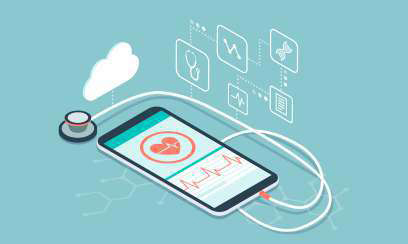We can better leverage today’s technologies to improve patient support, helping us to bridge the gap between patients and their access to medication
The potential to improve patients’ outcomes exists through digitalization – digital records, apps to connect patients to the right lifesaving and life-changing medication, constant medication alerts and reminders, and machine-learning platforms to create better tracking and reporting systems. What is exciting for us is how we can continue to push the envelope further with technology to anticipate a patient’s needs and deliver services on time, while also implementing digital systems that support physicians and their workflows.
Our effort to enhance access powered by technology comes in the form of patient support programs, which — though constrained by matters of eligibility — provide a crucial steppingstone in our endeavor to deliver the right patient care.
As such, these programs hold considerable power in moving us closer to the goal of providing equitable access to healthcare, irrefutably making them the main target for innovation in the field. Therefore, moving forward, we need to better integrate technologies available to us, and modernize our support programs to ensure we’re narrowing the accessibility gap patients face even further.
We are excited to launch the IUdo App in Qatar, a digital app that aims to address the patient accessibility barrier through digitizing and streamlining patient enrolments and ensuring appropriate support for patients enrolled in the patient support program.
Understanding the barriers to access
Concerns associated with high co-pays or out-of-pocket expenditures represent a significant barrier preventing patients from seeking care.
In the Gulf, besides hurdles associated with treatment costs, many patients face significant difficulties navigating complex healthcare systems and understanding what treatment and financial options are available. Moreover, mobility-related challenges in getting to and/or from appointments and filling prescriptions, combined with a stronger dependency on family and social support, often affect the path to effective disease management, reiterating the need for robust support programs.
Support program enhancement
Patient support programs (PSPs) are designed to make access to medication easier for eligible patients, enabling them to receive much-needed (and often life-altering) innovative medication they may not otherwise have access to.
Programs of this kind require that we are as diligent as can be when enrolling and supporting our patients. Not only do we need to ensure that the patients meet the criteria set through our appointed third parties, but we also need to guarantee that the medication they need reaches them as easily and as swiftly as possible. Aside from that, we need to make sure that it is safe for them, which involves a strict safety protocol that requires high levels of communication with the patients involved.
With that in mind, Reducing the margin of error in patient support programs, especially errors due to human factors, is key to improving their effectiveness and overall system performance.
The digital infrastructure now available to us provides a massive opportunity for growth and change toward an increasingly patient-centric approach in the industry. It is therefore imperative that we better leverage these technologies to move closer to a better future for healthcare.
That future is already approaching, as Pfizer’s newly developed IUDo app is bringing innovation to the equitable access landscape. Designed to make it easier for patients on selected patient support programs to access Pfizer medications, the mobile app improves both the patient and healthcare professional’s experience by speeding up program enrolment; providing seamless access to support treatment plans; increasing the scale and reach of programs to patients and allowing the entire support program journey to be managed directly from their phones. The app will soon be launched in the UAE and the region.
In recognition of the fact that barriers to medical access aren’t just about the price of treatments, innovation of this kind efficiently addresses identified gaps in the patient journey. It does this by leveraging the digital mobile technologies and paperless solutions at our disposal to introduce scalable solutions that facilitate all steps involved in joining a patient support program, from enrolment to ongoing support.
An added advantage is the potential for faster, more accurate troubleshooting processes through the enhanced communication these technologies can offer. As a result, we anticipate accelerated uptake of our medications, potentially creating faster impact and, most importantly, increased safety for patients in a shorter period.
Moving forward
As it stands, the field of healthcare continues to face many challenges surrounding the availability of medication to everyone who needs it — especially those at high risk. By innovating and combining our resources, experience, and commitment to partnership, we can make leaps and bounds ensuring equitable and affordable access to medication across the region is achieved.
As a science-driven and patient-focused organization Pfizer will continue to steer its digital transformation journey further towards utilising innovations like IUdo to deliver breakthroughs that change patients’ lives.
As we look ahead, there is no denying that dynamics are shifting, and that making use of the technologies of today is the best way to ensure that our patients continue to be well cared for now and in the future. If there is ever a time to effectively digitize our scope of work, systems, and programs, it would be now.
Author:
Parmjot Bains, MBChB, M Phil
Gulf Cluster Country Manager,PFIzer

Parmjot Bains is Pfizer’s Gulf Cluster Country Manager with 18 years of experience in medicine, international relations, and pharmaceuticals. She has worked in leadership roles in the US and Asia Pacific, with expertise in Pharmaceuticals, Strategy, Business Development, Marketing, Biotechnology, and Management. She received the US-based Healthcare Business Association Rising Star Award in 2022.














